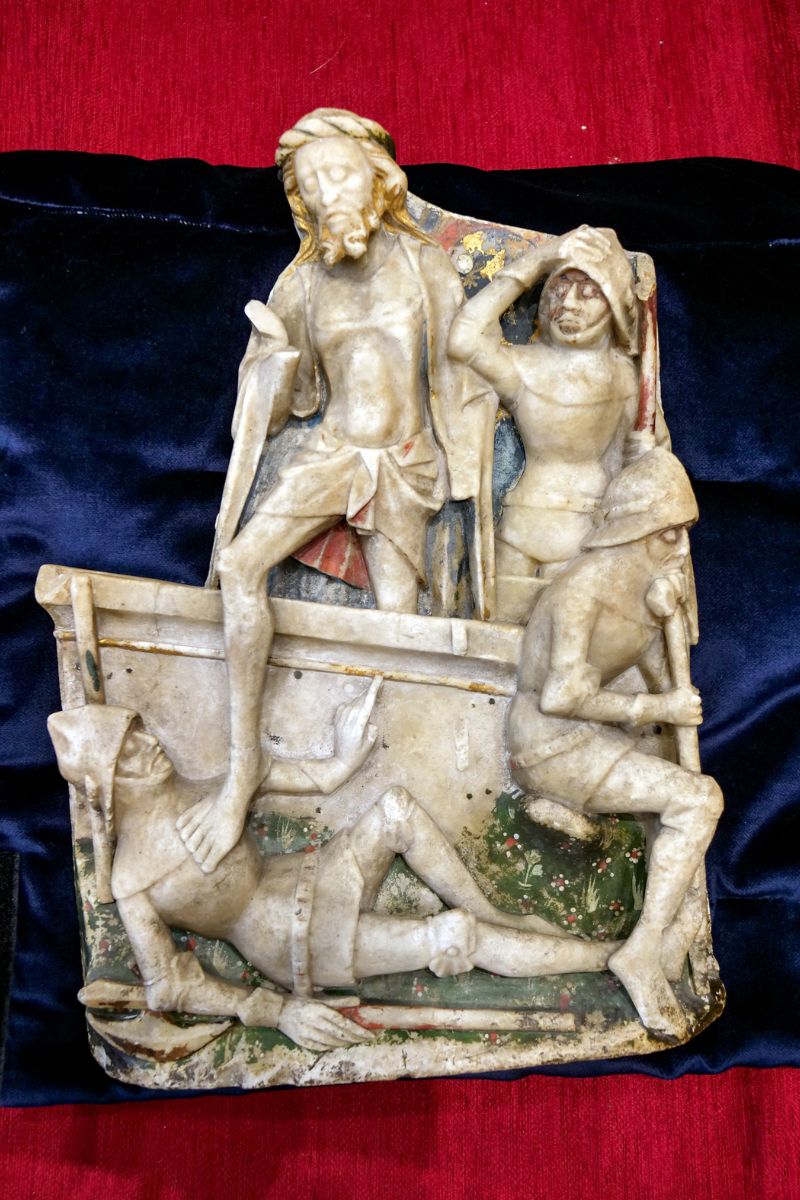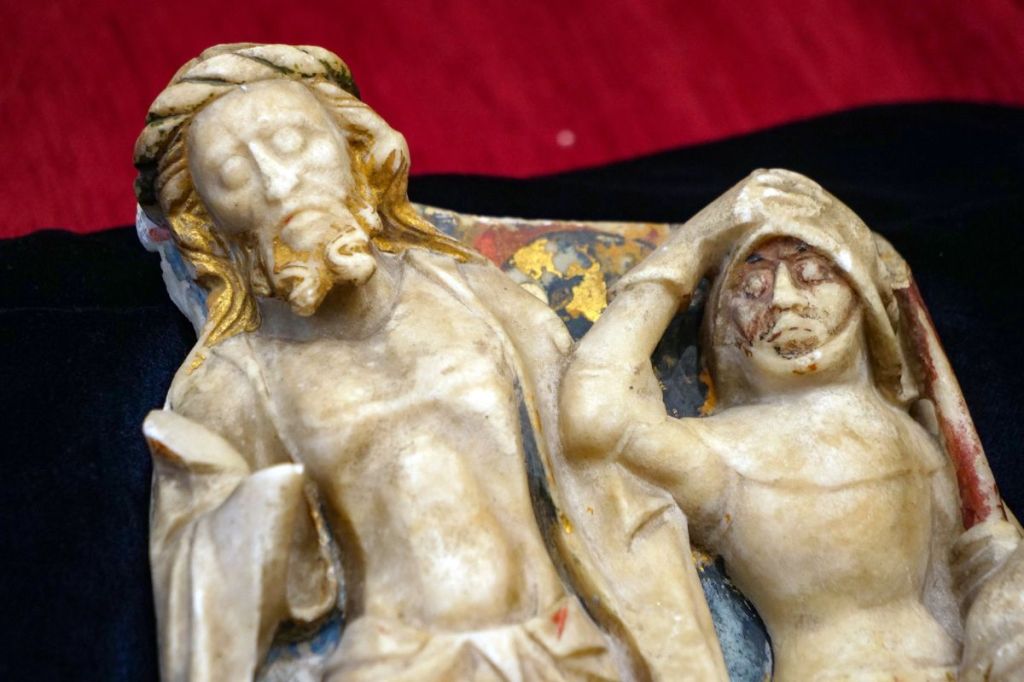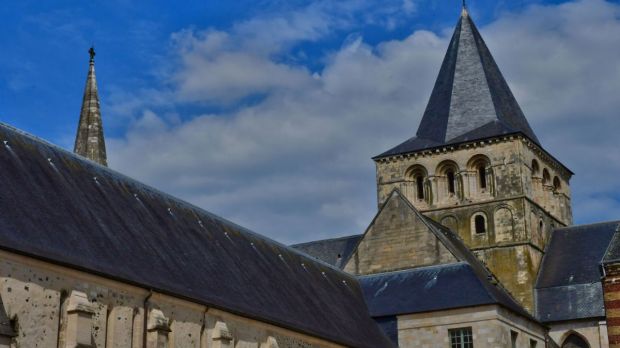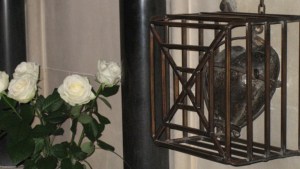On February 6, 2024, an alabaster bas-relief from the sumptuous abbey church in Montivilliers, on the northern coast of France, was returned to the town hall of this Norman commune (the government in France owns all church property dating from before 1905.) It had taken almost 60 years to recover this precious object.
Representing Christ emerging from his tomb, it had been stolen one night in March 1968.

The sacristan, who had closed the church as he did every evening, must have unknowingly locked in the two prowlers he had seen just before leaving the premises. The parish priest then discovered the extent of the theft: Not just one bas-relief, but 10 — as well as three paintings — were missing.
Listed as a Historical Monument
While all hope of finding the sculptures had been lost, Interpol was finally able to authenticate the bas-relief of the Risen Christ in 2016 in the catalog of a Parisian auction house.
All the stolen objects are listed as historical monuments, giving them state protection and conservation. The Resurrection of Christ was quickly identified from the Ministry of Culture’s photo database. In perfect condition, the work was then kept at the Service of Museums of France in Paris, before being returned initially to the town hall of Montivilliers.
It is now on display in the Condorcet Library, in the west wing of the Abbey, along with another sculpture of St. Catherine, which has been carefully protected since it was stolen in 1968. Both will join the Library’s heritage collection in a month’s time.
The other nine bas-reliefs, as well as the paintings, are still missing.

Religious heritage at risk in France
To date, there is no exact count of the number of religious buildings in France. It’s estimated that there are around 70,000 places of worship of all denominations. The vast majority are Catholic churches, chapels, and abbeys. There are between 40,000 and 50,000 of these, whether still dedicated to worship or not.
The theft of religious objects therefore primarily concerns Catholic heritage in France. In 2020, according to the Gendarmerie Nationale, France ranked second among the countries most affected by this type of theft. More than 1,400 incidents were recorded in 2018 and 2019, although “there has been a downward trend in recent years.”
French law currently stipulates that the theft of cultural property kept in a building used for religious purposes is punishable by seven years’ imprisonment and a fine of 100,000 euros.



